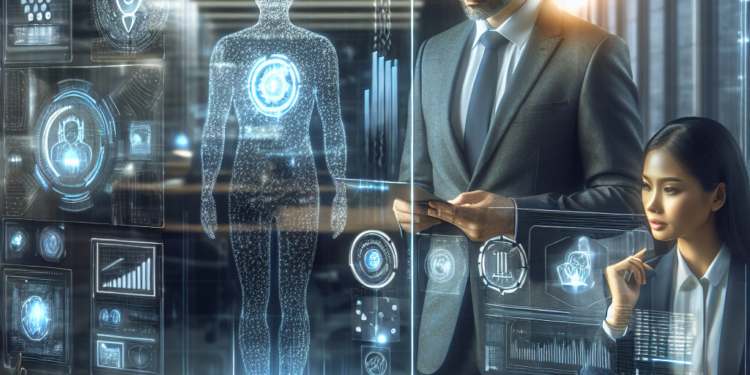In recent years, Artificial Intelligence (AI) has made significant waves in the field of Human Resources (HR), revolutionizing the way companies manage their workforce and make strategic decisions. From recruiting and onboarding to performance evaluation and employee engagement, AI is transforming the HR landscape and changing the way we think about talent management. In this article, we will explore how organizations can master the use of AI technologies in HR to improve efficiency, increase productivity, and drive better business outcomes.
One of the key areas where AI is making a significant impact in HR is talent acquisition. Traditional recruiting methods are often time-consuming and inefficient, requiring HR professionals to sift through hundreds of resumes and conduct countless interviews to find the right candidate. With the help of AI-powered recruitment tools, companies can streamline their hiring process, predict candidate success, and make data-driven decisions that result in better hires.
AI algorithms can analyze resumes and social media profiles to identify top candidates, screen candidates for specific skills and qualifications, and even conduct pre-employment assessments to measure a candidate’s fit for the role. These tools can significantly reduce time-to-fill rates and improve the quality of hires, ultimately saving companies time and money in the recruiting process.
Once a candidate is hired, AI can also streamline the onboarding process and help new employees get up to speed quickly. Chatbots can provide new hires with answers to common questions, guide them through the onboarding process, and even connect them with mentors or peers for support. This personalized, interactive approach to onboarding can improve employee engagement and retention, ultimately leading to a more productive workforce.
AI can also play a significant role in performance management and employee development. By analyzing performance data and feedback from employees, AI algorithms can identify patterns and trends that indicate areas for improvement, opportunities for growth, and potential risks. This data-driven approach to performance management allows companies to provide targeted coaching and training to employees, leading to improved performance and job satisfaction.
In addition to performance management, AI can also be used to track and analyze employee engagement. By monitoring employee sentiment, collaboration, and communication patterns, companies can identify issues early on and take proactive steps to address them. This can result in higher levels of job satisfaction, better teamwork, and ultimately, increased productivity and profitability.
Another key benefit of AI in HR is the ability to personalize employee experiences. By leveraging AI technologies, companies can tailor learning and development programs, wellness initiatives, and recognition programs to meet the unique needs of individual employees. This personalized approach can lead to higher levels of employee engagement, job satisfaction, and retention.
While the benefits of AI in HR are clear, implementing these technologies successfully requires a thoughtful and strategic approach. Companies must invest in the right AI tools and technologies, train HR professionals on how to use them effectively, and establish clear goals and metrics to measure success. Additionally, organizations must address concerns around data privacy and ethics to ensure that AI is used responsibly and in line with legal and ethical standards.
Overall, mastering AI in HR requires a commitment to leveraging technology to improve processes, drive innovation, and enhance employee experiences. By embracing AI technologies and exploring new possibilities for automation and optimization, companies can transform their HR functions and create a more agile, efficient, and engaging workplace.
In conclusion, AI is revolutionizing the field of Human Resources and offering new opportunities for companies to improve talent management, streamline operations, and drive better business outcomes. By mastering AI in HR, organizations can unlock the full potential of their workforce, achieve greater levels of productivity and efficiency, and create a workplace that is truly future-ready. The future of HR is AI-powered – are you ready to embrace it?













